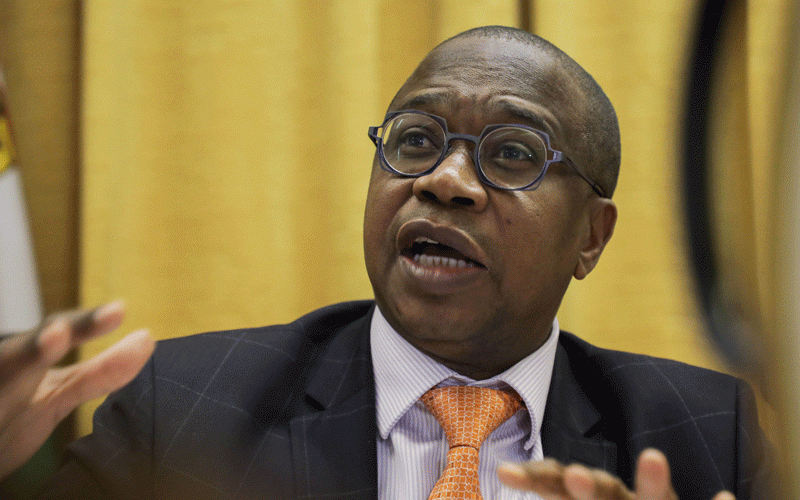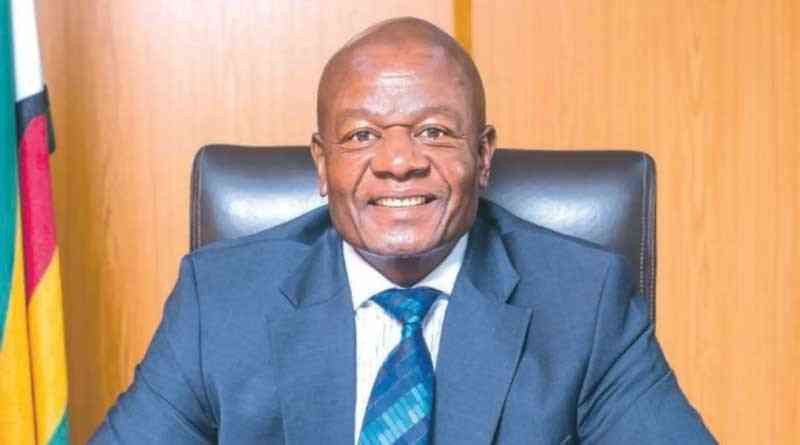
Its 2023 and three months to Zimbabwe’s general election and yet the atmosphere feels weirdly nostalgic. The return of the dreaded 2008 economic crisis seems well and truly upon us. With inflation figures hovering around 800% the dreaded 000s have arrived. The cost of a basket of basic goods for a small family now hovering at US$150 or ZWL $1,015 962.61 Its hard to imagine that in July 2018 inflation was at 10.18% with the World Bank projecting a positive trajectory.
Today the ZWL is on a steep downwards freefall slope as inflation soars. Inspite of numerous policy pronouncement the country’s economy seems to now be in a freefall crisis. The core responsibility of the Central Bank and Treasury is to stabilise the economy appears completely abandoned. A combination of policy blunders over the last 5 years have come home to roost. Furthermore calls from the Reserve bank Governor for citizens and investors ‘not panic’ appear at best outlandish and worst problematic.
Now is the time for the Central Bank and Treasury to steer the economy back to stability through tactile intervention not careless pronouncement. People will panic where there is a perceived abandonment of duty. The very thing that has brought us here.
Policy flip-flopping
One of the persistent characteristics of this tenure has been policy pronouncement. The Zimbabwean economic environment has been identified by a new policy almost as many times as a mosquito buzzes at night — just when you think it’s finally settled it starts again. In May 2022 the late Dr Alex Magaisa referred to the Zimbabwe’s economic policy pronouncements as ‘Bouts of Economic Madness and Cocktails of illegalities’.
A year later and more astonishing illegalities. The sheer one-a-day approach being taken for policy pronouncement is itself problematic and serves as a fait accompli on the rock bottom state of the economy.
Economic research has found that government policy interference results in high price volatility and impairment of market efficiency. In other words, because investors are always anticipating government changes they have to counter this risk through price adjustments and tactical short-term strategies (creating a hustler economy).
Property rights infringements
- Alex Magaisa’s body arrives home
- Upsurge in political violence cases worrying
- Letter from America: A livication to the late Alex Magaisa
- BSR: Judicial review of the Auditor General’s reports
Keep Reading
I was surprised to learn for instance that under Zimbabwean law there is no legal instrument referred to as ‘Presidential Announcement’ (Magaisa,2022). Even to think about it such a law would render legislatures completely unnecessary why debate anything in parliament when the president can just announce everything into law.
All constitutional policy should be passed into law by Parliament as primary legislation and then under a statutory instrument as secondary legislation. Yet in the last year alone we have seen at lease 3 such announcements with regards to economic policy.Further the latest (April/May) Policy Statements issued by both the Reserve Bank of Zimbabwe and the Ministry of Finance appear very dubious at law.
Zimbabweans have been issued at times with one sided A4 page with a few lines as policy announcement wherein these policies have deep implication on the socio-economic welfare of the country. This is gravely concerning.
Recently two of the most worrying pronouncement in the last 2 months are:
The release of the gold backed Digital Coins and
The absorption of all external loans by Treasury which apparently is aligned to the retention of business foreign deposits.
By extension the latter also is an infringement of business property rights similarly with the other recent policy statement from treasury that promotes use of local currency which includes the use of government enforcement agents impinges on the property rights of investors. Investors should be able to make investment decisions that align with their cash flow strategies without government interference as long as they are not committing fraud or theft.
Digital gold backed tokens
The central bank has been operating in crisis mode to retain the value of the local currency inspite of the market voting against its use. These crisis strategies have only managed to result in grand scale devaluation of the local currency as it has flooded the economy evidenced by the hike in Broad Money Supply.
The central bank is now attempting to mop up the excess supply by tokenising the country’s Gold reserve and selling them at a 90% discount. However the persisting trust and confidence deficit will render this plan null and void. This is already evidenced by the failure of the Gold Coins that were designed do the same thing.
These coins are already handicapped because of the way RBZ chooses to launch. The MPC is evidently not one for consultations or statutory alignments but has adopted dictatorial stance.
This has meant that just like the inaccessible digital coins before them the idea of digital back coins is not data driven and as such they lack in important detail. Furthermore there are no lessons recorded from the failure of the Gold Coins. A consumer survey was only launched after the coins were introduced to the market.
This information asymmetry compounded by an existing trust and confidence deficit means that the uptake of any such coins from genuine investors is minimal. Rather the digital coins will likely become popular with usual fraudulent and corrupt smoke and mirrors practices aligned to money laundering and/or other ills.
The income multiplier effect from any uptake of the coins or digital coins is eroded through leakage to offshore bank account or under the mattress banking.
Beyond the validity of the strategy another worry is its alignment to the country’s gold minerals. It is not clear as of yet the amount of the gold that is being purported to be set aside for the digital currency. Furthermore although the statement suggests these can be used as a legal tender it is not clear how retail business will be able to handle these at the point of sale. This is why this is not a data driven decision and the lack of consultation with businesses makes one question the intentionality behind this initiative.
Essentially this initiative allows the Reserve Bank to tokenise the country’s gold at nearly 90% discount this actually speaks to criminality more than it speaks to incompetence. We must appeal the MPC to strongly reconsider the terms of this deal given the dire straits the country is in in terms of social welfare.
Electioneering moral hazard
The other unfortunate event is that of the moral hazard presented by the Minister of Finance is also campaigning to be elected as a Member of Parliament.
Some of the policy positions are motivated by this ambition than by promoting economic stability. For instance, the removal of import duty on basic commodities is not likely to make any form of marginal contribution towards economic stability.
Additionally, the minister has sanctioned non-productive fiscal spending such as with judges payout of US$400,000 each and other misplaced priorities indicating fiscal indiscipline.
Given the fete of the local currency is now sealed its not too late to at least stabilise and prevent further decline. A shift in trajectory or an attempt to resurrect the economy would require structural changes of which currently there is clearly zero political will to achieve this. As such my recommendations for the next 3 months would be:
Stop behaving badly, there is a clear causality between our economic position and government policy on social issues such as Human Rights, Free and Fair election. The debt crisis and the sanctions issue are both alleviated if these issues are addressed. This is what the Minister of Finance should be championing and if we revisit his very first interviews in 2018 these are some of the things he said he would attend to this as part of his economic strategy. Infact in that interview the Minister of Finance echoed President Mnangagwa’s sentiments that sanctions were not the issue but rather an improvement in the social dialogue fabric of Zimbabwe.
Address the corruption: This government would rather sell everyone’s toes before it addresses corruption. Even where the work has been done, they have shown no appetite to complete investigations, repatriate funds and make genuine arrests of perpetrators. As such the country loses billions every month to corruption in offshore markets. At the end of 2022 a report in the Business Times suggested that Zimbabwe loses US$2Billion every year to corruption. And yet to date the Financial Intelligence Unit or ZACC or anyone have been able to arrest or repatriate any funds lost to corruption. The lack of movement on addressing corruption makes both minister of Finance and Governor complicit given the glaring but ignored evidence presented by investigative journalists, the Auditor General etc .
Address the currency crisis once and for all. There really is no reason why the government would rather create phantom currencies than to dollarize other than corruption. The current multi-currency regime has allowed corrupt practices to continue through the RBZ and other state institutions.
Given the grotesque failure presented before us over the last 5 years culminating into what we have now. The citizens of Zimbabwe must call for a disbandonment of the Central Bank to be replaced by a tactical task force whose only deliverable would be to halt the continued freefall through currency stabilisation as we head for General Election. After 2023 a new government will have its work cut out in reforming economic policy structures.
- Mutambasere is a development economist and a technology architect based in the UK. These weekly New Horizon articles, published in the Zimbabwe Independent, are coordinated by Lovemore Kadenge, an independent consultant, managing consultant of Zawale Consultants (Pvt) Ltd, past president of the Zimbabwe Economics Society and past president of the Chartered Governance & Accountancy Institute in Zimbabwe (CGI Zimbabwe). — kadenge.zes@gmail.com or mobile: +263 772 382 852.






